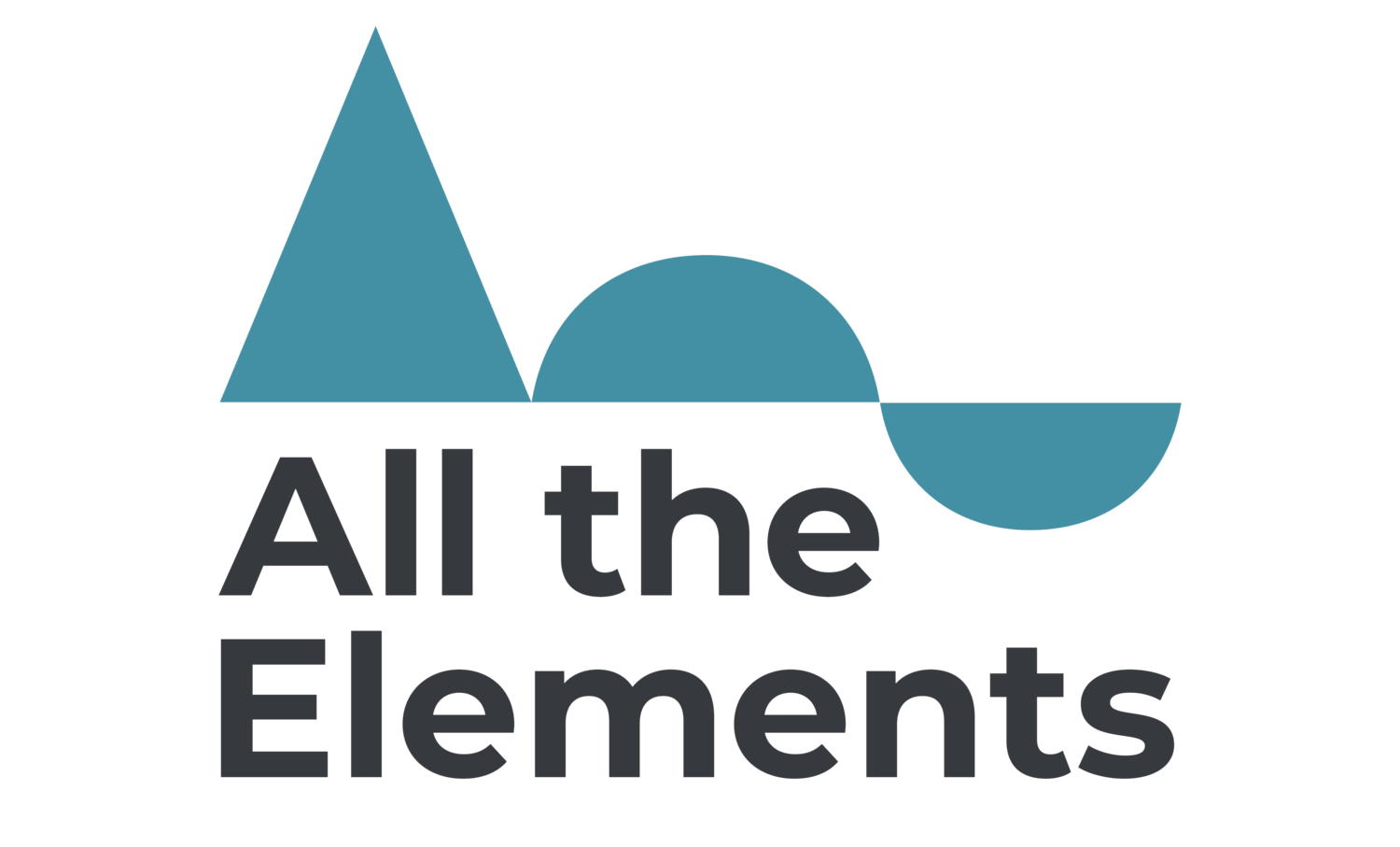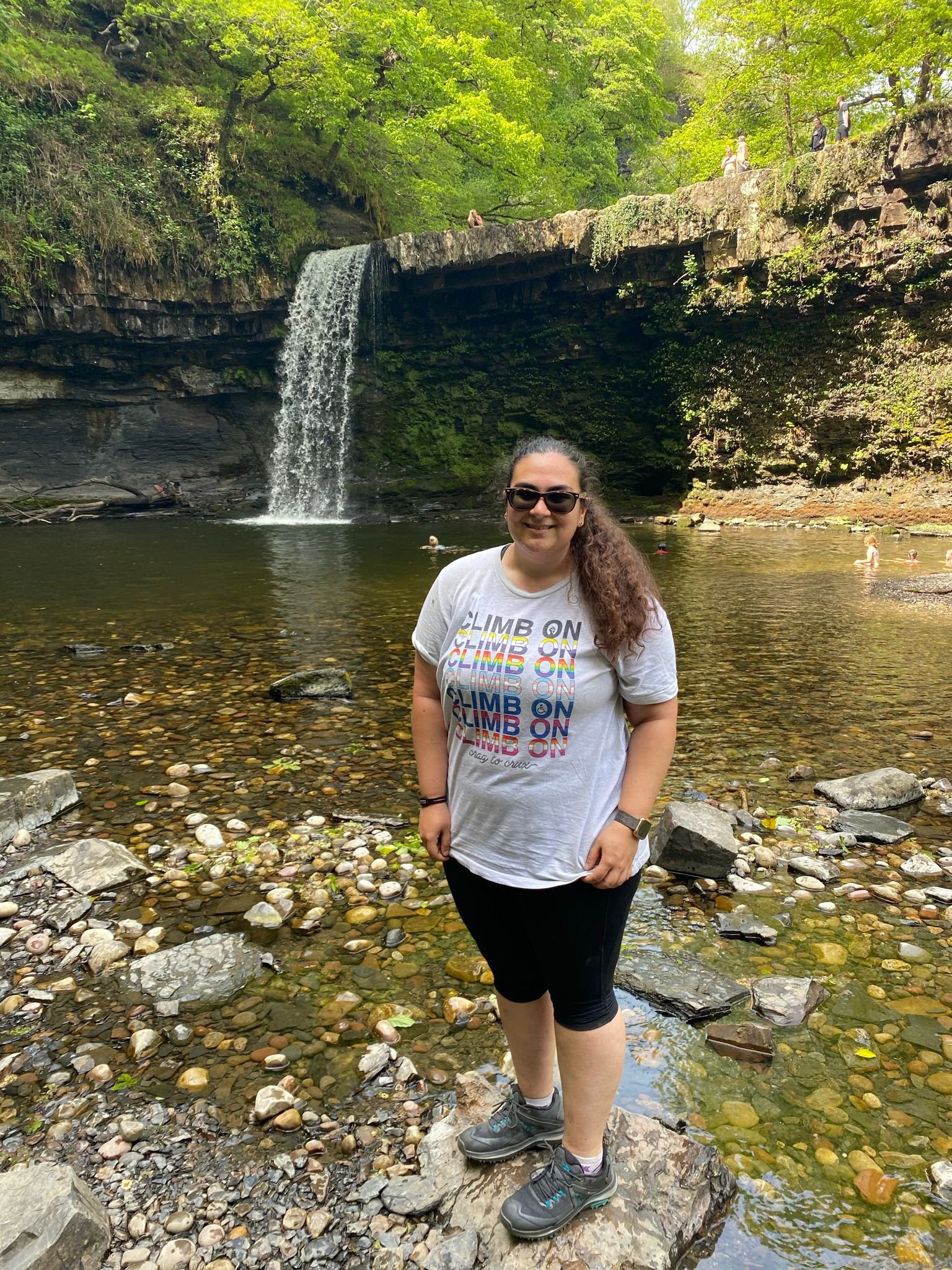Outside: Yasmins Way Pt.2
7 minutes reading time
Yasmin is a 27 year old Paraclimber. She is diagnosed with Ehlers Danlos Syndrome (EDS) and ME/Chronic Fatigue Syndrome (CFS).
Her symptoms consist of hypermobility leading to injuries, poor proprioception leading to injuries, fatigue and more.
Yas had been climbing for 5-6 years before she was diagnosed. When the pandemic hit she was under the Extremely Clinically Vulnerable category for the first 5 weeks due to her severe asthma and was told to avoid leaving her flat as much as possible.
One of the impacts of being a paraclimber was the extra planning that goes in to doing outdoor climbing. Due to the nature of EDS, by moving and doing activity you’re using up the limited energy you have and getting closer to fatigue. Everything from a shower, to driving, to walking, to climbing depletes that energy and does so a lot faster than it would for someone who doesn’t suffer from chronic fatigue. You have to ensure that you can handle the journey there, the approach, the climbs, the walk back and the journey back. You have to plan contingencies to ensure that if fatigue or pain unexpectedly kicks in then you have a way to handle that. This involves planning support from those around you too.
By the end of it you can feel like you’ve organized an entire expedition with the amount of preparation that will have gone into what is probably only a few hours outdoors.
Things like overnight accommodation, hiking poles, energy tablets, and if possible getting a lift can make a difference between enjoying a day out and triggering a flare up. Of course, with COVID, accommodation and car sharing were off limits for a while.
“When I go outdoor climbing, I pretty much only go with paraclimbers, or only go with people who know me really, really well. When I have gone with an organized group, I still went with someone who had similar issues and is a paraclimber so it wasn't just me. I think I'd be very, very unwilling to do something where no one around me was aware of my conditions, or how it might affect me, or what to do if something went wrong. I'd be genuinely scared.”
When it comes to things like climbing trips, they seem completely unattainable at the moment to Yasmin. They’re often packed with long climbing sessions with not enough rest in between for her needs. Climbing for two days in itself would only happen on a good day, so to do that and more without the correct amount of rest she needs in between would lead to flare ups, pain and fatigue. Trips away would have to be very scheduled to ensure she wasn’t over doing anything, but also very flexible if circumstances change and she ends up needing lighter activity.
The ideal would be that Yasmin's needs would be discussed with those going on the trip and it be planned according to those needs. But because it’s often not asked, it feels awkward to ask all of that from people and maybe more. So, Yasmin just won’t do it. Yasmin explained that people often think she plans too much and is “uptight”, but the reality is she’s just protecting herself.
It occurred to me that Yasmin hasn't always identified as a paraclimber. She has been climbing long before her health deteriorated. She will have been outdoor climbing and on climbing trips prior to being disabled. So the fact that she has that experience under her belt and still feels like she can’t do outdoor climbing without other paraclimbers, and can’t do climbing trips at all says a lot to me. Would things be different if she had additional support and understanding from her fellow climbers? Or if organizations made more of an effort to discuss and plan for her health issues?
It’s worth a try, right?
We talked a lot about how Yasmin’s feels in the paraclimbing community, but I was interested in how she felt about the climbing community in general. Did she feel unwelcome, or like she didn’t belong? Here’s what she had to say: “sometimes as a paraclimber within the wider climbing community I feel a bit misunderstood, like maybe it's a lack of awareness? But mostly the climbing community is pretty great. There are some times where I'll say, “well actually, I can't do X, Y, and Z because I'm a paraclimber”, and it will raise some eyebrows. I feel like everyone wants to learn and people can ask in the right way and at the right time. Especially people who work at the wall, when they're being genuinely curious about things, like belaying from the floor, and trying to learn for future clients, it feels quite nice that they're trying to improve their practice.
One of yamins top tips for folks with similar struggles to her was to connect with similar people. She’s found Instagram to be a really good place for that and I have to agree. After all, I met Yas through Instagram. Often on the climbing side of Instagram you get endless reels or amazing sends from people doing 3-4 grades higher than you and who are in peak physical condition with no disabilities. But paraclimbers are really starting to take up more space and I’m so here for it! The EDS climbers community, which is set up by Yasmin's friend, has brought lots of people together online and in person.
“Being able to connect with people that really, really understand has changed everything for me. Being able to connect with people who share my problems, but also my successes, has made everything a lot more accessible.”
Of course, I asked Yasmin what she would like the non-disabled/chronically ill readers to know. She said the following:
“It sounds self explanatory, but listen to people who have disabilities and chronic illnesses. We don't tend to lie about our experiences. listen non judgmentally.”
One point I could really get behind was being asked in advance what she needs, but also making your own efforts to think about it a bit. I explained earlier that planning outdoor trips can be like planning an expedition which is exhausting. When you already have chronic fatigue, that additional exhaustion is the last thing needed. So having someone else take a look at the route and think - maybe this part of the route isn’t very accessible, so suggest to Yasmin that they might try a different route for that reason. Even that small bit of extra thought can make all the difference.
Yasmin is part of United We Climb. An organization aiming at bringing equity to the climbing world. Yasmin is one of a few paraclimbers who are part of the United We Climb family, but they also work to support climbers from all sorts of underrepresented and marginalized backgrounds. I actually had a chance to try outdoor bouldering with United We Climb, you can read more about my experience with them here.
Another notable group that Yas is a big supporter of is Paraclimbing London. A friend introduced her to the group when she was very early on in her chronic illness journey. She was still question whether she could be classed a paraclimber or not. She was told that anyone that has a barrier to climbing is welcome in the paraclimbing community and in Paraclimbing London. She was looking for a supportive community and she found it there.
“They want to promote that climbing, no matter what barriers, is possible”
We talked a lot about how Yasmin’s feels in the paraclimbing community, but I was interested in how she felt about the climbing community in general. Did she feel unwelcome, or like she didn’t belong? Here’s what she had to say: “sometimes as a paraclimber within the wider climbing community I feel a bit misunderstood, like maybe it's a lack of awareness? But mostly the climbing community is pretty great. There are some times where I'll say, “well actually, I can't do X, Y, and Z because I'm a paraclimber”, and it will raise some eyebrows. I feel like everyone wants to learn and people can ask in the right way and at the right time. Especially people who work at the wall, when they're being genuinely curious about things, like belaying from the floor, and trying to learn for future clients, it feels quite nice that they're trying to improve their practice.
Of course, I asked Yasmin what she would like the non-disabled/chronically ill readers to know. She said the following:
“It sounds self explanatory, but listen to people who have disabilities and chronic illnesses. We don't tend to lie about our experiences. listen non judgmentally.”
One point I could really get behind was being asked in advance what she needs, but also making your own efforts to think about it a bit. I explained earlier that planning outdoor trips can be like planning an expedition which is exhausting. When you already have chronic fatigue, that additional exhaustion is the last thing needed. So having someone else take a look at the route and think - maybe this part of the route isn’t very accessible, and to then suggest to Yasmin that they might try a different route for that reason. Even that small bit of extra thought can make all the difference.
Meeting Yasmin was a huge moment for myself as well. It helped me understand my identify as a paraclimber and the things I can do to navigate it. I’m fortunate that I got to experience that understanding mentality early on into my interest in climbing. It’s really created an important foundation in the way I climb to ensure I don’t injure myself to push myself or try to do what others do. Finding that supportive community and someone to talk to has taken out that period of time that I have trying to work out how to climb whilst disabled and how to navigate all barriers. I can see why things like United We Climb, Paraclimbing London and EDS Climbers are so vital to climbing community for both paraclimbers in providing support and friendship, and the non-disabled community in providing awareness.


